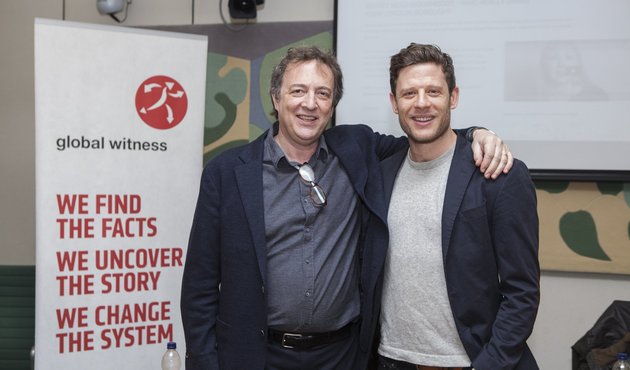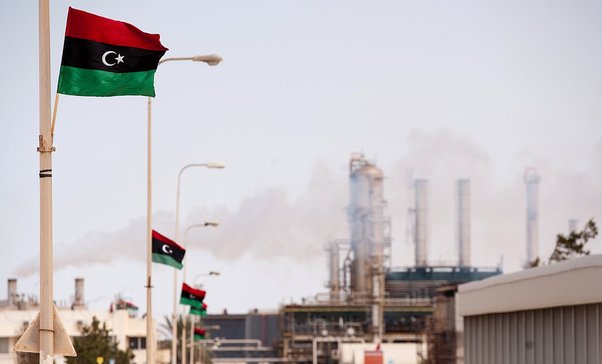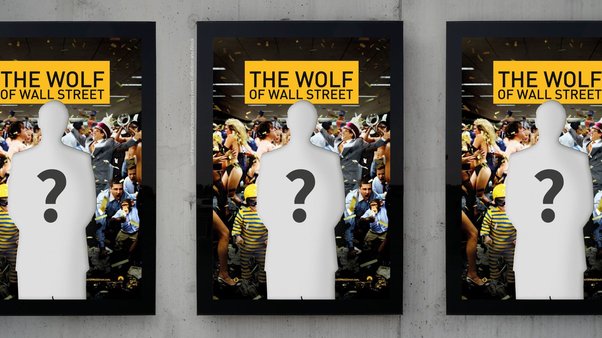TV drama McMafia tells the gripping story of modern day organised crime, corruption and money laundering. While the series is fictitious, the themes are chillingly real and reflect much of the work we investigate and expose
Drama McMafia, first broadcast on the BBC and then on AMC in the US, tells the gripping story of modern day organised crime, corruption and money laundering.
While the series is fictitious, it is based on a non-fiction book by Global Witness’ Advisory Board member, Misha Glenny (pictured above left), which features a number of our investigations.
The adaptation’s themes are chillingly true to life and reflect much of the work we investigate, expose and campaign to change.
As the story unfolds, we’ve been shining a light on the real-life issues behind the on-screen drama – including through an event in UK Parliament with Misha Glenny and McMafia star James Norton (pictured above, right).
Money laundering: How the criminal and corrupt steal, hide and spend
In one episode James Norton's character Alex Godman explains how a corrupt politician can move his money around the world while keeping his identity a secret.
This is happening on a massive scale in banks and boardrooms right now.
Here’s how it works:
- First you have the money you want to hide: profits from drug trafficking, money you have skimmed off the state or even outright bribes given in return for political favours.
- You hide the money offshore, setting up a series of secret companies which can be registered in tax havens. Like a Russian doll, you set up one company inside another company inside another company - until it becomes practically impossible for anyone to work out who is really behind it.
- Once that’s set up, you move your money through these companies so it comes out looking clean - and totally unconnected to you. Finally, you get to spend the money on whatever you want.
It doesn’t have to be like this. Many of the world’s most notorious tax havens – like the Cayman Islands and British Virgin Islands, where this secrecy is for sale – are under the UK’s jurisdiction.
That means the Prime Minister has the power to make them open up, and remove the smokescreen used by the criminal and the corrupt to hide billions.
Modern-day mobsters: UK institutions and their role in corruption
As McMafia shows, modern day corruption blurs the lines. Criminals today aren’t always mobsters on street corners.
They can be bankers, like Alex Godman in McMafia, acting as knowing participants, one step away from the bullets and blood depicted in the show.
We see characters like this in many of our investigations. Corrupt politicians, dodgy oil deals and shady business are facilitated – knowingly or unknowingly – by teams of lawyers, bankers and accountants.
These people don’t just enable corruption – they profit from it.
These can be the elite lawyers working in London and New York. The bankers who transfer the wealth of nations at the touch of a button. And they have blood on their hands.
The grim reality: corruption costs lives
Corruption is not a victimless crime. It destroys livelihoods and ruins lives. McMafia’s harrowing account of a woman kidnapped and trafficked around the world isn’t an unusual one.
At Global Witness, we document the number of people who are killed each year because companies want their land.
We see how these companies can literally get away with murder because they can afford to pay off government officials and the police.
As outlined above, the corrupt use anonymous companies in tax havens to siphon off cash and spend it on luxurious lifestyles.
While they sip champagne in Paris and send their children to the most prestigious schools in London, people in the countries they are stealing from starve, and are denied access to education, health or running water.
Corruption and criminality is moving online
McMafia also describes a system of corruption and crime powered by the internet and involving the technical know-how of hackers.
This mirrors what we know of real world corruption and crime.
Gone are the days of suitcases stuffed full of cash. Dirty money is now bounced through the computer systems of the world’s banks.
Valued at between 800 billion and 2 trillion dollars a year, this is big business – and the money’s almost impossible to trace.
Yet as corruption and other criminality moves online, we at Global Witness are pioneering new ways of finding and exposing it.
UK tax havens are at the heart of the problem
McMafia has shown us the global nature of organised crime and how ill-gotten money flows around the world under a cloak of anonymity.
And many of the UK’s own Overseas Territories are at the heart of this global system of secrecy.
If McMafia reflects real life, what can we do about it?
As we’ve shown, storylines similar to those in McMafia are playing out in real life every day.
We’re campaigning for solutions to stop this systematic corruption sweeping across our cities, towns and communities.
- Nearly 86,000 properties in England are owned by anonymous companies – we need a register of the true owners of UK properties owned by foreign companies to stop them becoming a haven for dirty money. If you’re in London, find out how many anonymously-owned properties are in your London borough and call on your MP to support introduction of a register.
- Open up the UK’s tax havens, places such as the Cayman Islands and British Virgin Islands, to the same transparency standards as the rest of the UK. Read the latest on the campaign here



